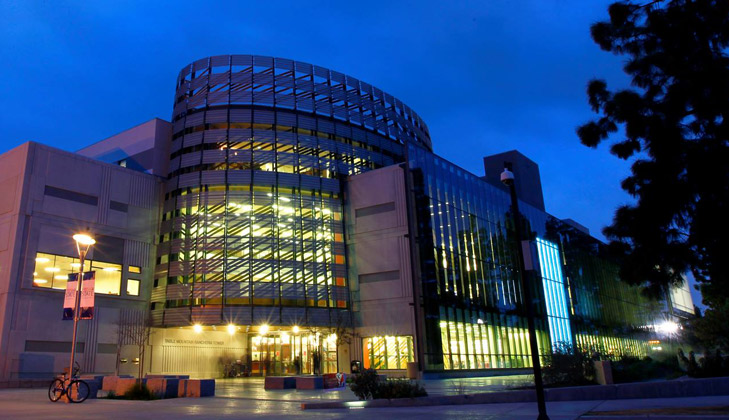Fresno State students who have checked out books from the Henry Madden Library can keep them for the summer — due dates have been extended.
As the University ceased on-campus instruction on March 20, some students were uncertain whether they should turn their books in or stay at home amid Gov. Gavin Newsom’s shelter-in-place orders.
“We made a lot of quick decisions during that time,” said Del Hornbuckle, dean of library services. “But one of the most popular was extending due dates to the end of August.”
The extension is only one way the Madden Library continues to support the education of students and the work of faculty during virtual instruction. Libraries are typically the central hub of intellectual life on campus, but what happens when the library is nearly empty of students, or closed?
The Madden Library made a lot of changes from March 20 until March 30 when it ceased to hold building operating hours for essential services as Fresno State prepared to go to all virtual instruction. Before then, a skeleton crew of library staff kept the doors open to support technology programs like Tech Lending and DISCOVERe as they checked out tablets, laptops and hotspots to students and faculty who needed them for their classes.
The librarians, however, were prepared to go entirely virtual in early March. “The library team began strengthening existing virtual services (phone, chat, email services) early as the COVID-19 crisis developed,” said Sarah McDaniel, director of user services. “We planned a high-level Virtual Resources web page to keep campus updated regarding in-person and online services as conditions changed. Thanks to these preparations, which involved staff from many departments, we were able to move to fully online service when the library closed.”
The library team also gave particular attention to the library’s collection of 250 course reserve books, including many textbooks purchased with funds from Associated Students, Inc. These books are kept in reserve to lend to students who cannot afford textbooks. Library staff quickly began identifying online alternatives to these print resources so that no student loses access to the textbooks they need. In addition to these research and textbook services, the librarians fielded over 200 questions via phone, email and chat in the first two weeks of virtual instruction.
Most University library services and resources in this day and age are electronic as well as in-person.
“People tend to think of libraries as buildings with books,” said Marianne Foley, director of library technology and collection management. “But today’s libraries go far beyond a central space. Every day they provide materials and services to a wide audience in and beyond the library building. People no longer need to visit the physical library to check out a book, study a map or get help with a reference question. They can do it all from the comfort of their homes or offices.”
Madden librarians are available for research support and consultations via email, chat and phone from 9 a.m. to 5 p.m. Monday through Friday and from noon to 5 p.m. on the weekend throughout the rest of the semester. The subject librarians often schedule appointments via Zoom to discuss the needs of students and faculty. They guide student and faculty patrons through digital collections, databases, e-journals and e-books routinely.
That guidance is something librarians and staff take very seriously. “I’m so appreciative of the dedication of my co-workers in making the transition to virtual services,” said Britt Foster, public services librarian. “Our job is to provide access to high-quality information, regardless of format, and my colleagues did an amazing job of thoughtfully and quickly pivoting to new pathways to support our students and faculty in the current learning environment.”
The Madden Library website also links visitors to support services on campus like The Writing Center, The Learning Center, DISCOVERe, and the Center for Faculty Excellence through their Patron Connect page. Madden librarians have also created a guide with information for students as they learn from home: LibGuide: Fresno’s State COVID-19 Survival Guide. It lists all of the online ways to find a librarian, as well as resources for news, textbooks, wellness, employment and more for the Fresno State community.
“Libraries have been utilizing digital and online services for years now,” Hornbuckle said. “This is the modern face of libraries — connecting the wealth of information inside of a building to the rest of the world.”





